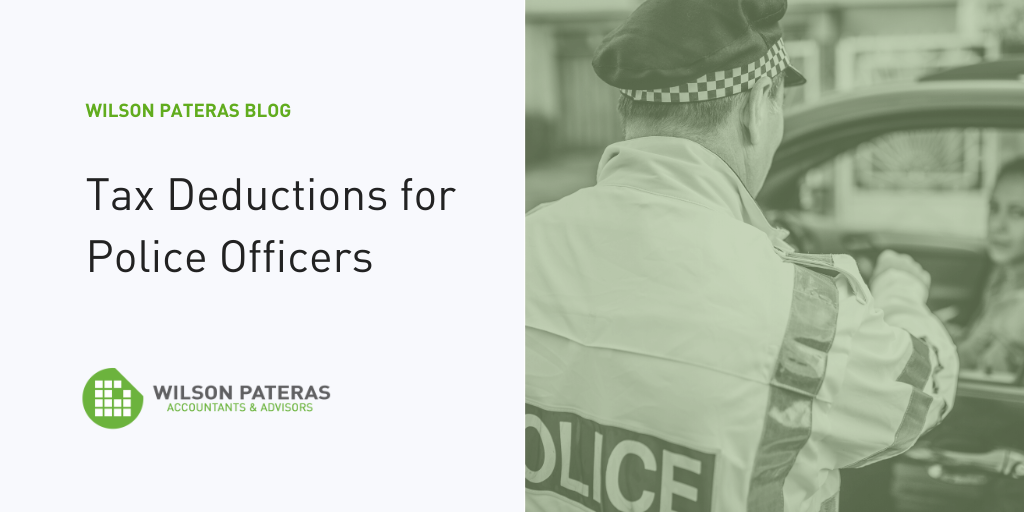
Working as a police officer potentially makes you eligible for a range of occupation-specific tax deductions, as well as general deductions that are available to other members of the workforce.
Below are some of the tax deductions you can claim as a police officer, as well as some expenses that you cannot claim.
Occupation-specific tax deductions for police officers
If you pay for any of the below work-related expenses out of your own pocket and are not reimbursed by your State or Federal Police employer, then you will be eligible for a tax deduction of the relevant amount:
- conventional clothing expenses if you are required to undertake undercover police work (but not if you are working merely in a plain clothes role) and you buy additional conventional clothing to wear during a specific operation
- protective equipment you may buy for yourself to wear in your police role (which can even include items like sunglasses and sunscreen if you must work in the sun for extended periods, as well as more obvious protective equipment).
- equestrian equipment you may buy for yourself to wear in your role if you work with police horses.
- expenses incurred in looking after or training police dogs.
- ammunition you may buy to improve your firearm proficiency (or any firearm training courses that you may attend in your own time).
- Federal Police pistol club fees.
- renewal fees for licenses or certificates needed for your role (such as a ‘Working with Children’ clearance), except driver’s licence renewals.
- defensive driving courses that you undertake at your own expense in your own time.
It is worthwhile getting advice from one of our tax specialists at Wilson Pateras to maximise your eligible deductions. Helping police officers with their tax returns is one of the specialist services we provide.
General employment tax deductions
Once again, any of the below items are allowable general deductions if you pay the expenses yourself and are not reimbursed by your employer:
- the cost of cleaning your uniform (or your plain clothes if you are working undercover).
- car expenses if you need to drive your own vehicle for work-related purposes (however, you cannot claim the cost of travelling to and from your home and work).
- phone/internet costs if you use any of your own devices for work purposes.
- first aid courses/training costs if you are both a designated first aid person and need to complete a course to assist in emergency work situations.
- self-education expenses that relate directly to your work as a police officer and maintains or improves skills and knowledge you need for your current duties or results in (or is likely to) an increase in your current employment.
- union fees.
- tax return preparation fees.
Expenses that you can’t claim as tax deductions
While it is important to maximise all your tax-deductible expenses as a police officer, it is important to understand that there are costs that may be associated with your role that you cannot claim. They include:
- relocation expenses if you are transferred.
- clothing expenses if you work in a plain clothes (but not undercover) role.
- gym fees (unless you have a special police role that requires you to maintain a very high level of fitness and perform ongoing strenuous physical activities as an essential and regular part of your role).
- meals consumed during work time (unless you are travelling in your role and staying away from home).
Records you need to keep
You need to keep records of any tax-deductible expense that you want to claim. These records could include printed or digital receipts (for example, you can take a photo of your receipt) and you are required to keep them for at least 5 years from the date you lodge your tax return in case you are ever audited by the Australian Taxation Office.
Please contact us to book an appointment to lodge your tax return.





